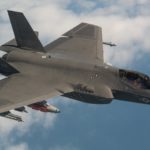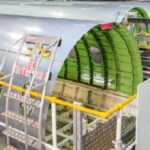Australian flag carrier grounds predecessor to B737MAX and orders inspections of 32 others with less than 30,000 flights as manufacturer faces grilling from crashes in Congress
Qantas has grounded one Boeing 737NG due to a structural crack, and has announced that it is urgently inspecting 32 others.
The grounding comes as Boeing boss faces a grilling in US Congress on the two 737 MAX crashes – the predecessor to the 737NG – which killed 346 people in Ethiopia and Indonesia. Problems with the 737 MAX’s flight handling software were highlighted in both crashes.
The US aviation authority has already ordered checks of Boeing 737NG planes which had flown more than 30,000 times. The move came after Boeing reported the “pickle fork”, which helps connect the wing to the fuselage, could be prone to cracking.
Fault found in 737NG with less than 27,000 flights
Qantas has reported that it had also found the cracking fault in an aircraft which had recorded fewer than 27,000 flights. The report follows the grounding of nine B737NG planes in early October, including five operated by Korean Air.
In a statement, the Australian flag carrier said: “This aircraft has been removed from service for repair.” It added that it had hastened the inspection of 32 other 737NG, which will be completed tomorrow.
Qantas head of engineering Chris Snook reassured passengers of the carrier’s commitment to safety. He said: “We would never operate an aircraft unless it was completely safe to do so. Even when a crack is present, it does not immediately compromise the safety of the aircraft.”
Crack reported in Chinese plane
The FAA initially said Boeing had notified the agency of the problem after encountering the issue on a plane in China. Subsequent inspections showed other planes also had cracks.
Boeing chief executive Dennis Muilenburg is currently facing another more tough questions from the US House Committee on Transportation and Infrastructure. US lawmakers have accused the company of a “lack of candour” and lack of accountability over the crashes. The pilots of both the Lion Air and Ethiopian Airlines flights lost control to an anti-stall system, known as MCAS, after it deployed in response to a faulty sensor.

